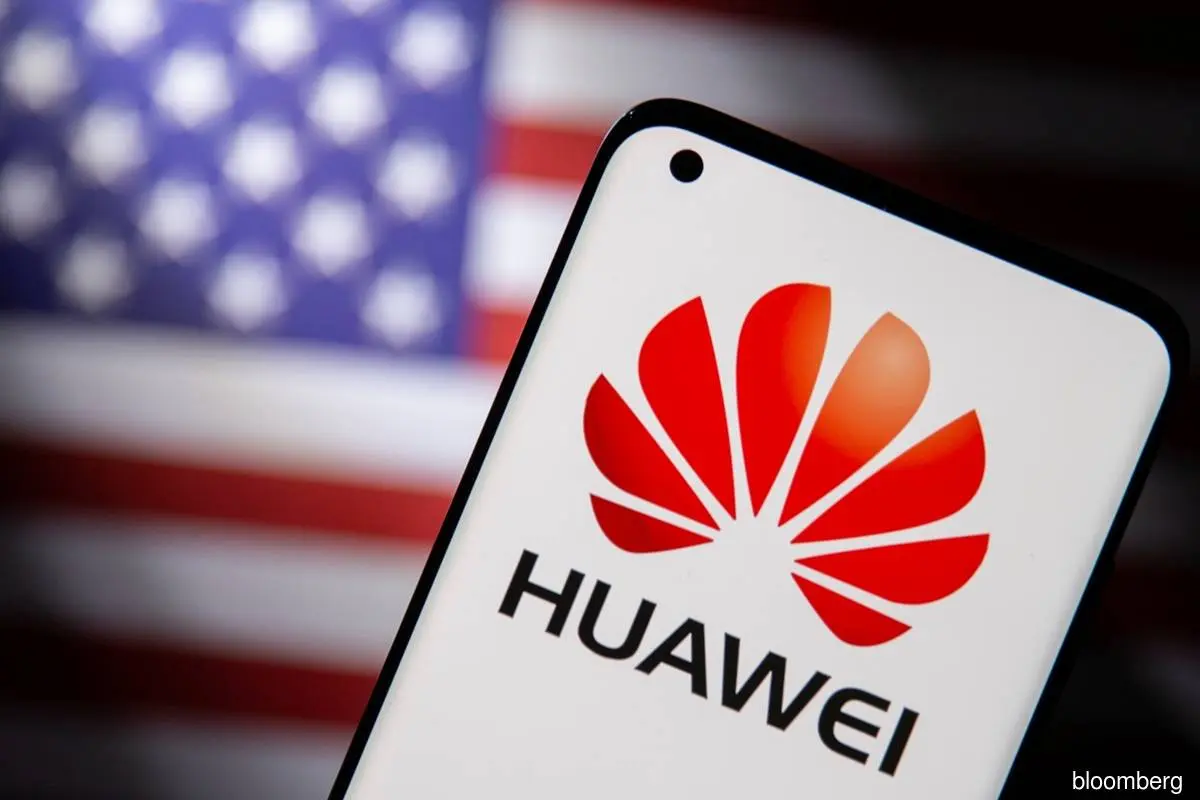The Biden administration is pushing for a collective approach to curb Huawei’s influence and Beijing’s efforts to reduce reliance on Western technology.
The Biden administration is contemplating the blacklisting of several Chinese semiconductor firms connected to Huawei Technologies Co., following a significant technological stride made by the telecom giant last year, according to sources familiar with the matter.
This potential move signifies a further escalation in the US efforts to restrict and restrain Beijing’s ambitions in artificial intelligence (AI) and semiconductor industries, intensifying pressure on a Chinese national champion that has made notable advancements despite existing sanctions.
The majority of the Chinese entities that could face ramifications were previously identified as chipmaking facilities acquired or under construction by Huawei, as per a presentation by the Semiconductor Industry Association (SIA) based in Washington. While no final decisions have been made, the companies potentially in the crosshairs include chipmakers Qingdao Si’En, SwaySure, and Shenzhen Pensun Technology Co., alongside China’s leading memory chipmaker, ChangXin Memory Technologies Inc.
The US government is also considering sanctioning Shenzhen Pengjin High-Tech Co. and SiCarrier, companies involved in semiconductor manufacturing gear, on concerns of aiding Huawei in obtaining restricted equipment. Efforts are underway to engage allies like the Netherlands, Germany, South Korea, and Japan to tighten restrictions on China’s access to semiconductor technology, with Huawei positioned at the center of this campaign.
The Biden administration is pushing for a collective approach to curb Huawei’s influence and Beijing’s efforts to reduce reliance on Western technology. While it remains uncertain whether the Commerce Department has additional evidence linking the companies to Huawei, the US has the authority to sanction businesses deemed detrimental to national security, even without proof of past harmful or illegal activities.
The White House’s National Security Council and the Commerce Department’s Bureau of Industry and Security declined to comment, while representatives for the Chinese companies and the Ministry of Commerce remained unavailable for comment. However, the Ministry of Foreign Affairs reiterated opposition to US actions disrupting market order and harming Chinese enterprises.
The timing of the decision will likely hinge on the state of US-China relations, with Treasury Secretary Janet Yellen expected to visit China in 2024, and discussions of a potential phone call between President Joe Biden and Chinese leader Xi Jinping. Other policy considerations include the long-awaited adjustment of sweeping China tariffs imposed under former President Donald Trump and the possibility of raising duties on older-generation chips from China.
Although Huawei was added to the entity list in 2019, hindering its access to American technology, the company unveiled a Mate 60 device powered by a 7-nanometer chip made in China last year. This chip, manufactured by Semiconductor Manufacturing International Corp. (SMIC), underscores China’s efforts to develop a domestic semiconductor supply chain. However, foreign dependencies persist, highlighting the challenges China faces in replacing foreign components.
The Bureau of Industry and Security (BIS) is investigating the 7-nanometer chip, and Commerce Secretary Gina Raimondo has pledged robust actions to safeguard US national security. Republican lawmakers have called for complete restrictions on Huawei and SMIC’s access to US suppliers.
As the US deliberates its next steps, the potential blacklisting of Chinese semiconductor firms linked to Huawei reflects the ongoing battle to secure technological dominance and national security in the face of rising global competition.
